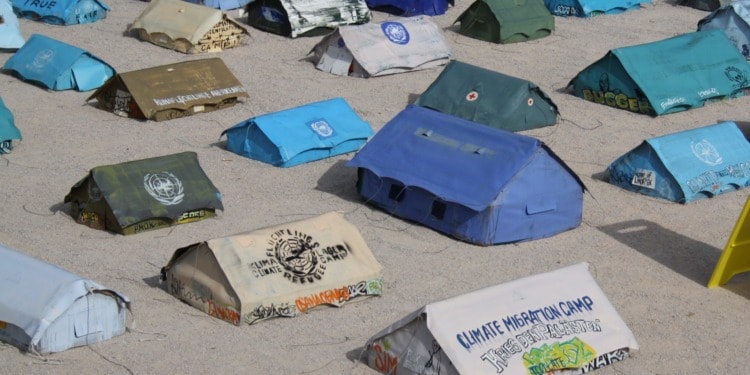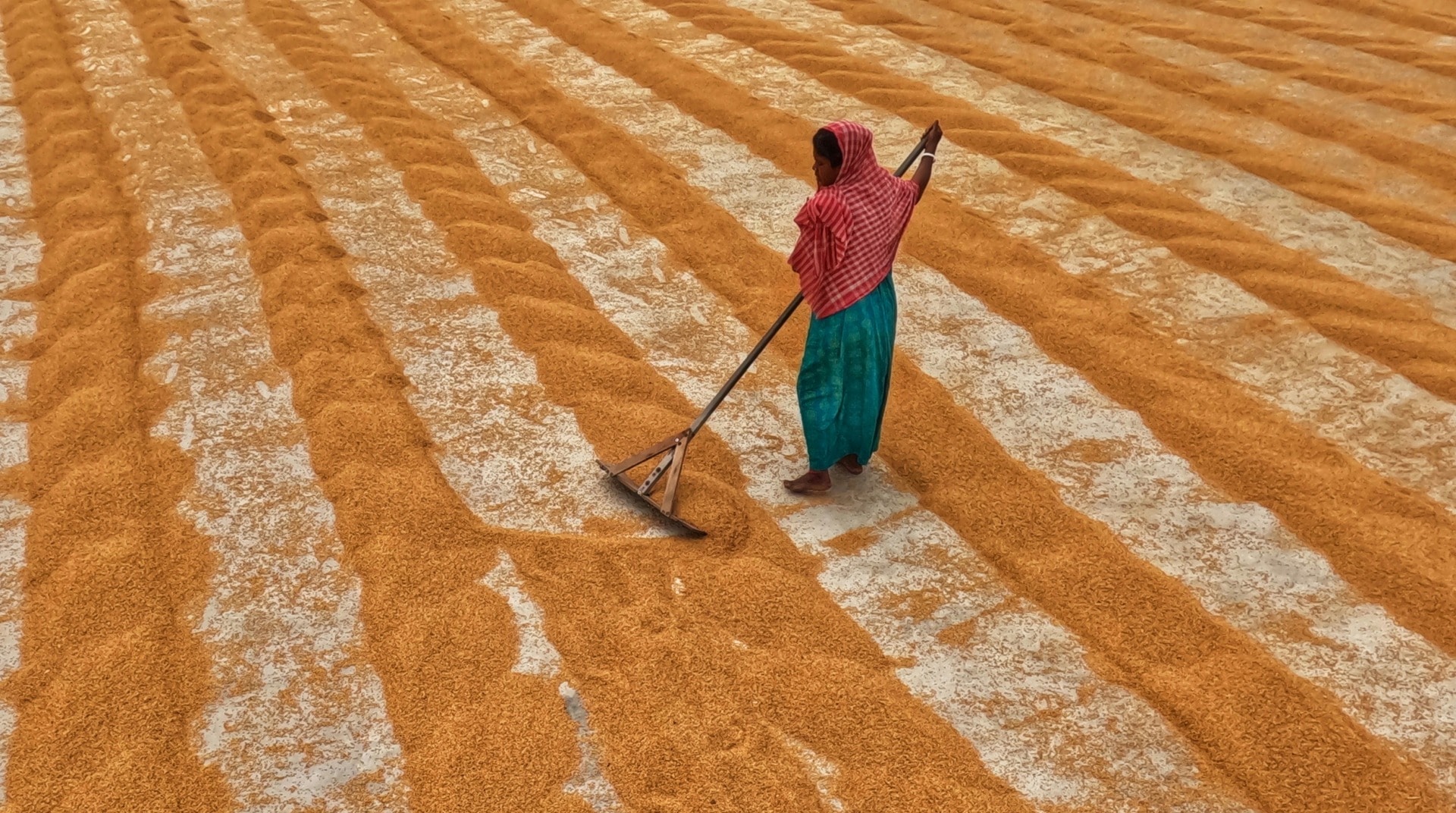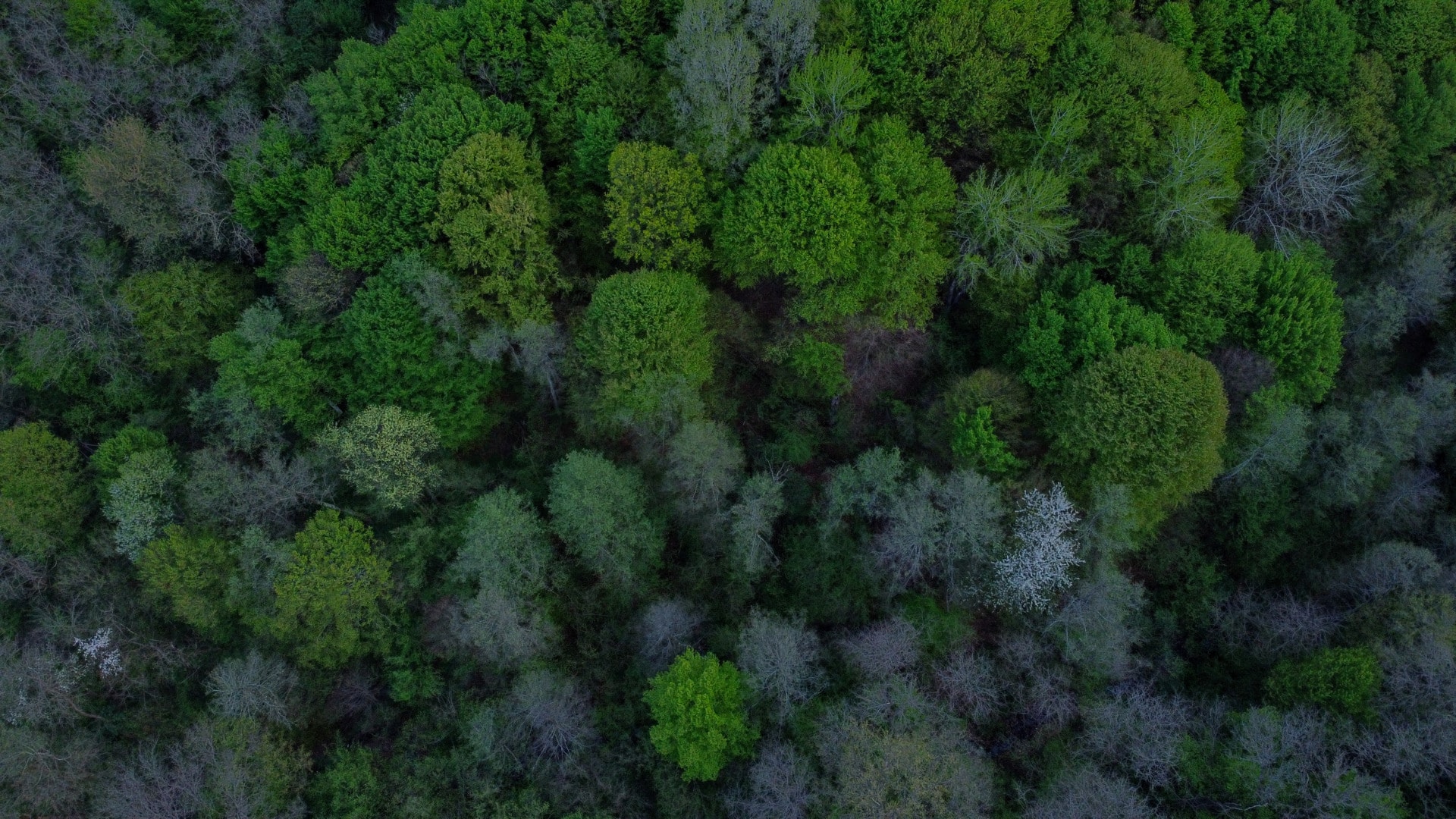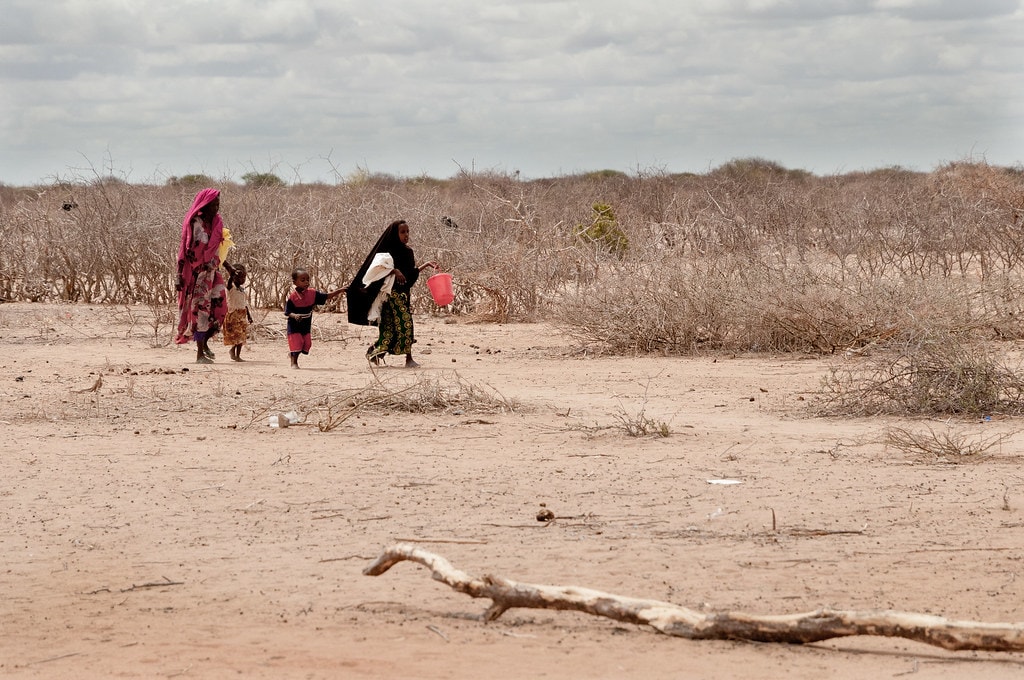If you look down on Earth from the International Space Station, up above us in low-earth orbit, the perspective is planetary. It provides a kind of existential clarity that, down here, is often obscured by our daily worries and politics. This “planetary perspective” is one with which Gaia Vince, a.k.a. “Wandering Gaia,” award-winning science journalist, broadcaster, speaker and author of new climate migration book, “Nomad Century,” embraces.
https://www.youtube.com/watch?v=86YLFOog4GM
She views the global population as one. Through this lens, Vince’s book paints a hard-hitting picture of how climate change and its impacts will render large regions of the planet uninhabitable, redefining planetary boundaries and resulting in the mass displacement of millions (if not billions) of climate migrants across the globe.
“Have no doubt, we are facing a species emergency” writes Vince in the book’s opening pages, “but we can manage it.”
Alongside the reality check of possible catastrophic climate scenarios, Vince also provides a reassuring and pragmatic manifesto of how humanity can navigate its way through the challenges of mass climate migration.
“We can survive, but to do so will require a planned and deliberate migration of a kind humanity has never before undertaken,” Vince goes on to write, inspiring both urgency and hope as she strives to open dialogue and change the global mindset on climate migration.
“Migration is not the problem; it is the solution – it always has been,” Vince writes in the book.
We had the pleasure of speaking with Gaia about the need to start talking more openly and honestly about climate migration, about the need to change the negative narratives and perspectives on climate migrants, and about the need to start planning for our survival – “as a joint species of humanity.”
“This is an issue I feel so strongly about”
Vince began our conversation by saying: “This is an issue I feel so strongly about.”
“We are in this really crazy time with so much negativity and hostility towards migrants,” she said, “the policy is so hostile towards migrants, and we know that the number of migrants is going to go up because of climate change.”
“At the same time, the policy is all mixed in actually dealing with climate change,” she said, “and so these two crises are starting to really come to the forum and nobody’s talking about it, so I really want to get a conversation going about this.”
To set the scene for the message she hopes to convey with “Nomad Century,” Vince explained that “at the moment, we’re somewhere between 1.2 and 1.35 degrees above the pre-industrial average,” but went on to warn that “it’s perfectly feasible that we’re at somewhere between three and four degrees by the end of the century.”
“That is catastrophic,” she said.
The world will become “much more unlivable”
“Lots of people are already experiencing the extreme conditions of climate change,” said Vince, but explained that climate models show the world is set to become “much more unlivable.”
These unlivable portions will emerge “particularly across the tropics,” Vince said, but also in parts of “southern Europe, into Asia, down south as far as Patagonia in the Americas, down the southern tip of Africa and most of Australia,” including the “coastlines and river deltas where many of the worlds biggest cities are.”
“Conditions will be so extreme that people will not be able to simply adapt, they will have to move,” said Vince, describing such conditions as the “Four Horsemen of the Anthropocene” – i.e., fire, flood, heat and drought which will force climate migrants to “the far northern latitudes of the planet.”
We need to “face up to the reality of this”
“What I’m proposing is that we face up to the reality of this, because this area that is particularly affected is home to most of the world’s population,” said Vince.
“So we have a huge issue here,” she said, warning that, while the exact numbers vary, “anywhere from hundreds of millions to billions of people will have to move, perhaps more than a billion by mid-century.”
“This is a huge number of people and we’re not talking about it, we’re not planning for it,” said Vince.
“We need to make plans for our survival”
“Nomad Century really is a book that jolts us awake and says ‘let’s be pragmatic, let’s really look at what climate change means to the world’s landscapes and to where people live, and let’s look at the fact that people will have to move, and we should help them move from unsafe places,’” said Vince.
“We need to rethink the way we manage movements and migratory processes across the planet,” she said, “we need to make plans for our survival as a joint species of humanity.”
Climate migration is already happening, it’s just “hidden”
Climate migration is often viewed as a problem for the future rather than a problem for right now, but in reality, climate migrants are already being forced from their homes in many parts of the world.
“Climate migration is already very much underway,” said Vince, “it just doesn’t necessarily come under the label climate migration because of the bureaucracy around it and the way people are described,” explaining that climate migrants are often miscategorised as “economic migrants.”
Related Articles: New Policies Reveal UK Priorities; Will They Stop the Boats and Stop the Press? | Illegal Pushbacks in Greece Are Costing Refugees Their Lives | How Climate Change Will Redraw Maps and Borders | Female Activism in the Anthropocene: 15 Women Fighting For Our Future
“A lot of climate migration is also hidden because it’s internal, it’s within countries,” she said, “I’ve been to places where people have pointed to the sea and said ‘this is where my school was,’ or ‘my house was here, it’s disappeared, we had to move,’” said Vince.
“It’s inevitable that people will have to move,” she said, however, the “sheer numbers are not.”
“There is a lot we can do with mitigation and adaptation to help people stay,” said Vince.
“We need to be mitigating all the time… but we also need to adapt”
In the book, Vince touches on a variety of solutions to navigate climate migration, but she also highlights the importance of deploying different mitigation and adaptation solutions in parallel.
“We need to be mitigating all the time,” said Vince, “we need to completely stop adding to our problem.”
“But we also need to adapt to this very changed world, because the world is changing and it will continue to change in various ways,” she said, underlining the importance of adaptations to our food and energy systems as well as our homes and cities.
“One of the adaptations we need to do globally is social adaptation,” said Vince, “it’s part of who we are as a species,” explaining that it’s about “enabling people to move through networks to places of safety where they can flourish.”
“That’s really what this book’s about,” said Vince.
“For migration to work… it needs investment”
When asked what kind of shifts need to occur within the various frameworks of global society for climate migration strategies to succeed, Vince told us:
“For migration to work, for immigration to work at scale, it needs investment,” she said, “that means investment financially” – which she said will be “more than repaid longer term” – but it also means “social investment; investment in an inclusive mindset, an inclusive way of thinking and an inclusive society.”
“We need to make it work globally,” said Vince, explaining that “international organisations such as the UN” could coordinate climate migration on a global scale, but that “this also has to happen regionally, bilaterally, with agreements between different countries.”
“This needs to be really at the top of discussion, because it’s the solution to a lot of the problems that we have at the moment,” she said.
“An inclusive mindset, an inclusive way of thinking and an inclusive society”
When it comes to negative perspectives on climate migrants and migration in general, Vince points to the current anti-migrant narrative as part of the problem.
People need to be “given a different narrative about immigrants,” said Vince, “not that they are coming over to steal our jobs or benefits,” but instead, “that they are coming to be the new citizens, the new people of our economy and part of helping move it into the next decade.”
But why is this anti-migrant narrative continuing in the first place? Vince thinks it’s partly due to “populist leadership in many powerful countries” and the fact that “we’ve also had some very badly managed migrations” which she said “presents this dehumanising picture of migrants.”
“None of us live in the house that we were born in, and some of us have crossed borders to get there”
Vince described it as “terrible” that leaders haven’t created an alternative narrative for migration, explaining that “we haven’t had the opportunity to see migration as completely normal and as a hugely positive and important part of our modern societies.”
“We need to realise that they are the same as us, that they are part of us,” she said, “that we all hold multiple identities, that migration isn’t a crime and that we all move.”
“None of us live in the house that we were born in, and some of us have crossed borders to get there,” said Vince.
“Migrants actually improve economies”
Migration is often obscured by misinformation, misconception and myth, in particular, the recurring argument that migrants and refugees are an “economic burden.” But Vince highlighted that if we actually look at the statistics, many of the negative associations can be disproved.
“There’s enormous amounts of evidence showing the very positive effects that migrants bring,” she said, revealing the truth behind many negative migration tropes:
“The idea that immigrants lower wages; it’s actually the opposite that is true. The idea that they raise unemployment; the opposite is true. Or the idea that migrants increase crime rates; again, the opposite is true.”
“Migrants actually improve economies, they improve economic productivity as well as all the other benefits they bring in terms of culture and society, like different foods, music and language,” said Vince.
There have also been recent conversations on how climate migration could become an essential component of helping countries bridge the skills gap in the clean transition.
We need “honest conversations about what the reality of a climate-changed world really looks like”
Vince thinks that having a more open and honest dialogue on climate mitigation, adaptation and migration is imperative “so that we can make democratic decisions.”
“We should be having conversations about what we are going to do when hundreds of millions of people have to leave areas that they live in and need new homes,” she said, “what are we going to do about that?”
“I think we need to talk about these much, much more openly, and have proper, honest conversations about what the reality of a climate-changed world really looks like for all of us,” said Vince.
“Nothing is impossible”
While we are now well aware of the extreme nature of the climate crisis, there still seems to be a distinct disconnect between this and the acceptance of radical ideas to tackle it.
Vince explains that she thinks we’ve been “trapped in a mindset of our time and our society, and we think that’s normal, that it’s always been like that.”
“When we’re talking about national borders, they’re actually really recent,” said Vince, “until recently, most countries were trying to get more people in and were worried about people leaving – emigration was the big problem.”
“We imagine this situation we’re in now, where our cities are full of polluting cars and we cook on gas, and we can’t imagine a different way of living,” she said, “it is a trap.”
“We have to picture a different future. We have to picture the future that we want and then try and get there,” said Vince, “we can release ourselves from this trap because it really is a kind of very imposed idea of now; our ancestors lived completely different lives.”
“It doesn’t have to be like this at all,” she said, “nothing is impossible.”
Editor’s Note: The opinions expressed here by the authors are their own, not those of Impakter.com — In the Featured Photo: Intermon Oxfam climate migrant installation, described as a “miniature migrant climate camp set up in Madrid (and in other EU capitals) as Oxfam reminds EU heads of state what is at stake if they fail to provide new money for poor communities to protect themselves from climate change.” Featured Photo Credit: Oxfam International














